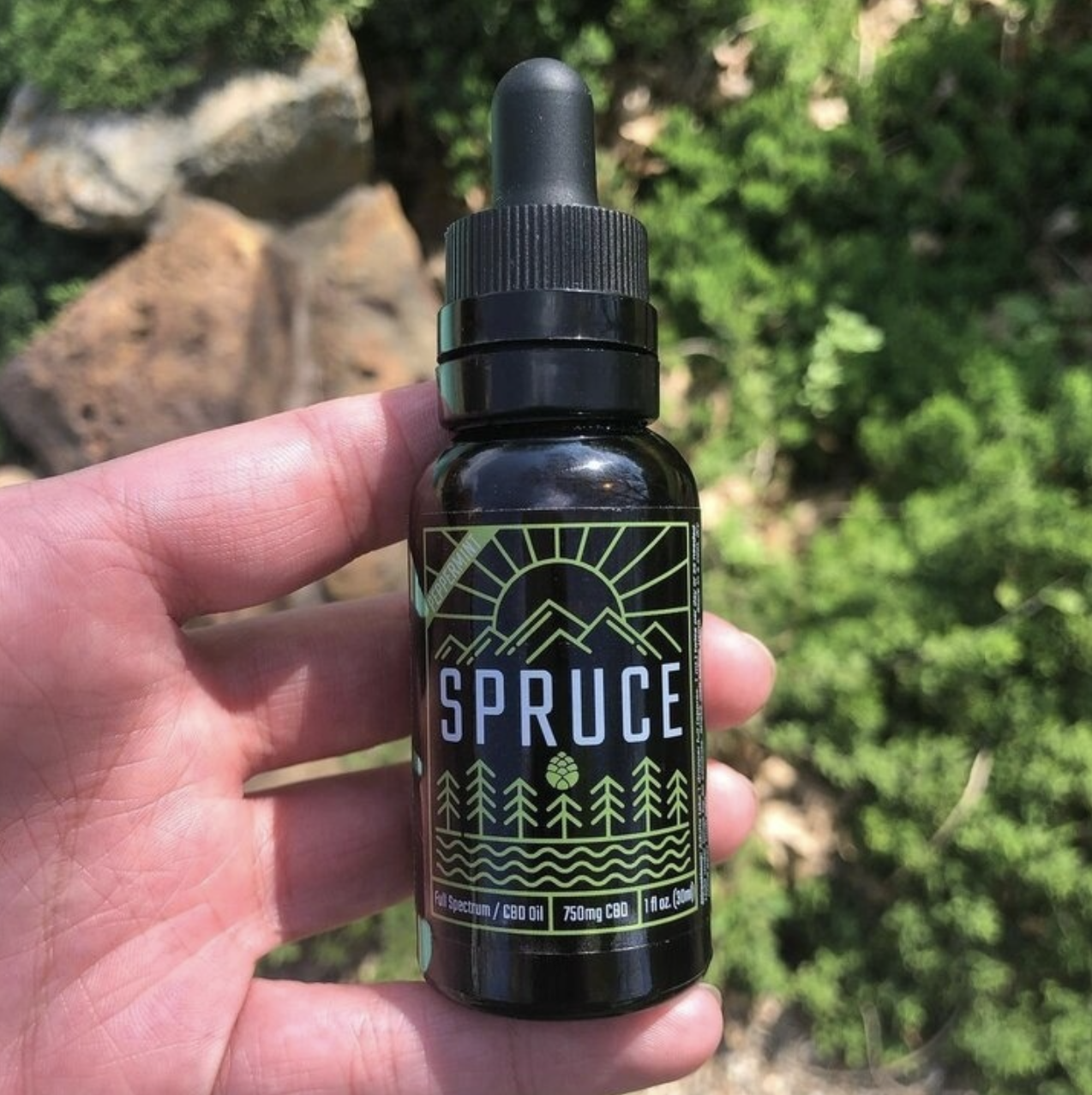How Long Does It Take for CBD Oil To Work? 8 Influencing Factors

How long does it take for CBD oil to work? If you’re new to CBD, this is likely one of the first questions on your mind. CBD oil has gained popularity for its potential health benefits, but understanding how quickly you might experience its effects can be a bit confusing.
The timing can vary based on several factors including how you take it, the potency of the product, your dosage amount and timing, and your individual body chemistry.
In the following, we’ll explore these factors in detail, providing you with the knowledge you need to set realistic expectations and make the most of your CBD journey.
How Long It Takes CBD Oil To Work: Influencing Factors
CBD, or cannabidiol, is a naturally occurring compound found in the cannabis plant, renowned for its potential therapeutic benefits without the psychoactive effects associated with THC. It is commonly used to address a variety of health issues, including chronic pain, anxiety, insomnia, and inflammation.
As more people turn to CBD oil for its potential health benefits, understanding the factors that influence how quickly it works is more important than ever. Several variables can affect the onset time of CBD oil’s effects:
1. Method of Use
Different forms of CBD products, such as oils, gummies, topicals, and capsules, have varying onset times due to their unique absorption methods.
For instance, CBD oil taken sublingually, or under the tongue, typically works faster than other forms. This method allows the CBD to be absorbed directly into the bloodstream through the capillaries under the tongue, leading to quicker effects, often within 15 to 30 minutes.
In contrast, edibles like gummies must pass through the digestive system before entering the bloodstream, which can delay the onset of effects by 30 minutes to 2 hours. Topicals, which are applied directly to the skin, work locally and might take effect within 15 minutes but are not absorbed into the bloodstream.
Additionally, whether or not you take CBD oil as recommended can significantly impact its effectiveness. For example, swallowing CBD oil immediately without holding it under your tongue for the recommended 60 seconds can reduce its absorption rate and delay its effects.
2. How Much You Take
Generally, higher doses of CBD tend to produce more immediate and pronounced effects compared to lower doses. This is because a larger amount of CBD in your system can interact more readily with your body’s endocannabinoid system, which plays a key role in regulating various physiological processes such as mood, anxiety, pain sensation, and sleep.
However, it’s important to start with a lower dose and gradually increase it because each person’s body reacts differently to CBD. Taking too much too soon can not only increase the risk of side effects but may also be less effective if your body needs time to adjust to the compound.
3. Dosage Frequency
Consistent dosing helps maintain stable levels of CBD in your body, which can lead to more reliable and pronounced relief. When you take CBD oil regularly, your body can build up a steady concentration of the compound, enhancing its overall effectiveness and ensuring more predictable results.
In contrast, taking CBD oil sporadically or inconsistently can lead to fluctuations in its levels within your system, resulting in less predictable effects and potentially delaying the onset of relief. By maintaining a regular dosing schedule, you can optimize the benefits of CBD oil and experience its effects more consistently and quickly.
4. How Long You’ve Been Taking CBD
For many individuals, the benefits of CBD become more apparent with continued use over time. This is because CBD interacts with the body’s endocannabinoid system, which may require time to adjust and respond to the compound effectively.
When you first start taking CBD oil, your body might need a few days to a couple of weeks to fully acclimate. During this initial period, you may notice gradual improvements rather than immediate, dramatic changes. However, as you continue to use CBD regularly, its effects can become more pronounced and consistent.
Additionally, long-term use of CBD can contribute to a cumulative effect, where the compound builds up in your system and enhances its therapeutic potential. This is why many users report experiencing more significant relief from symptoms after several weeks or months of consistent use.
It’s essential to be patient and give your body time to respond to CBD. If you’re not noticing immediate effects, it doesn’t necessarily mean that CBD isn’t working; you might just need more time for your body to adjust and for the benefits to manifest fully.
5. Form of CBD
The form of CBD you use—whether it’s full-spectrum, broad-spectrum, or CBD isolate—can significantly impact how long it takes for the CBD oil to work. These different forms contain varying compounds and levels of cannabinoids, which influence their effectiveness and the onset time of their effects.
Full-spectrum CBD contains all the cannabinoids, terpenes, and other beneficial compounds found in the cannabis plant, including trace amounts of THC (less than 0.3%).
This combination creates what is known as the “entourage effect,” where the different compounds work together synergistically to enhance the overall effectiveness of the product. As a result, full-spectrum CBD may work more quickly and provide more comprehensive relief than other forms.
Broad-spectrum CBD also contains multiple cannabinoids and terpenes, but it has all traces of THC removed. While it provides the entourage effect to a certain degree, it may not be as potent as full-spectrum CBD. However, broad-spectrum CBD can still offer relatively fast and effective relief, especially for those who prefer to avoid THC.
CBD isolate is the purest form of CBD, containing no other cannabinoids or terpenes. While it can still be effective, the lack of the entourage effect means it may take longer to notice the benefits, and the effects might not be as dramatic as those provided by full-spectrum or broad-spectrum CBD.
6. Type of CBD Product
Sublingual CBD oil, taken by placing drops under the tongue, typically provides the fastest relief because it is absorbed directly into the bloodstream through the capillaries under the tongue. This method usually allows you to feel the effects within 15 to 30 minutes.
Similarly, vaping CBD oil can produce rapid effects, often within minutes, as the CBD is inhaled and absorbed through the lungs, but vaping poses health risks.
Edibles such as CBD gummies, chocolates, tablets, and softgels, must pass through the digestive system before being absorbed, which can delay the onset of effects by 30 minutes to 2 hours.
Topical products, such as CBD creams, lotions, and salves, are applied directly to the skin and work locally rather than being absorbed into the bloodstream, often providing relief within 15 minutes for targeted areas like muscles and joints.
7. Potency and Quality of Product
High-potency CBD products contain a high concentration of CBD, which can lead to faster and more noticeable results. CBD oil with a higher milligram content per serving can deliver more CBD to your system in a shorter amount of time, potentially providing quicker relief compared to a lower potency product.
High-quality CBD products are made from premium, organic ingredients and undergo rigorous testing for purity and potency. These products are more likely to contain the stated amount of CBD and be free from contaminants, ensuring that you receive a reliable and effective dose.
Poor-quality products, however, may have inconsistent CBD levels or be contaminated with harmful substances, which can diminish their effectiveness and delay the onset of relief.
8. Your Body
Your individual body characteristics, such as size, weight, and metabolism, play a key role in determining how long it takes for CBD oil to start working. Larger individuals or those with a higher body mass may metabolize CBD differently compared to smaller individuals, potentially affecting the speed and intensity of its effects.
Additionally, metabolic rate influences how quickly your body processes and absorbs CBD; those with faster metabolisms might experience quicker onset times, and those with slower metabolisms may find the effects take longer to manifest.
Furthermore, individual variations in body chemistry and overall health can impact how your body responds to CBD. Factors such as liver function, age, and diet can all influence how efficiently CBD is processed.
How CBD Works Within the Body
CBD, or cannabidiol, interacts with the body’s endocannabinoid system (ECS), a complex network of receptors and neurotransmitters found throughout the central nervous system and peripheral tissues. The ECS plays a key role in maintaining homeostasis and regulating various physiological processes, including mood, pain sensation, and immune response.
CBD primarily interacts with two types of cannabinoid receptors: CB1 and CB2. CB1 receptors are mainly located in the brain and central nervous system, while CB2 receptors are found throughout the immune system and peripheral organs.
By influencing these receptors, CBD can modulate neurotransmitter release and reduce inflammation, potentially alleviating symptoms like pain, anxiety, and sleep disturbances.
CBD also interacts with other receptors, such as serotonin and vanilloid receptors, which can influence mood, pain perception, and inflammation. Additionally, CBD may inhibit the activity of certain enzymes that break down endocannabinoids. By preventing the breakdown of these compounds, CBD can increase their availability and enhance their effects.
CBD is metabolized primarily in the liver, where enzymes break it down before it enters the bloodstream. This process can affect how quickly and efficiently CBD works.
Factors like individual metabolism, liver function, and dosage can influence how long it takes for CBD to produce its effects. Understanding this metabolic process helps explain why the onset of relief can vary between individuals and highlights the importance of consistent dosing.
Finding the Right Dose and Dosage Frequency
The ideal CBD dose varies from person to person and depends on factors such as body weight, your metabolism, and the specific condition being treated.
It is often best to start with a low dose and gradually increase it until the desired effects are achieved. A low dose of CBD typically ranges from 5 to 10 milligrams (mg) per serving.
Starting with a low dose allows you to observe how your body reacts and helps in adjusting the dosage gradually to find what works best for your specific needs while minimizing the risk or side effects. As you become more familiar with how CBD affects you, you can increase the dose incrementally if necessary while monitoring for any side effects or changes in effectiveness.
Dosage frequency is equally important. For many people, maintaining a consistent level of CBD in the system through regular dosing is more effective than taking larger amounts infrequently.
This consistent approach can help ensure that the benefits of CBD are sustained over time, providing more reliable relief from symptoms.
Understanding the Entourage Effect
The entourage effect is a concept that describes how different compounds in the cannabis plant work together to produce a more significant impact than any single compound alone. This effect involves cannabinoids, terpenes, and other phytochemicals interacting synergistically within the body to enhance the overall therapeutic benefits.
In full-spectrum CBD products, which contain a wide range of cannabinoids and terpenes, the entourage effect can amplify the potential benefits of CBD.
For example, while CBD is known for its anti-inflammatory and anxiety-reducing properties, the presence of other cannabinoids like minor cannabinoids (e.g., CBG, CBN, or CBC) and terpenes can contribute additional therapeutic effects, potentially leading to a more comprehensive and effective relief.
Broad-spectrum CBD products, which exclude THC but retain multiple cannabinoids and terpenes, can also produce an entourage effect, though it may not be as pronounced as with full-spectrum products.
CBD isolates contain only pure CBD and lack the entourage effect because they do not include any other cannabinoids or terpenes to enhance the overall efficacy.
CBD Not Working? Possible Explanations
Various factors can affect how CBD interacts with your body and its effectiveness in providing relief. Understanding these potential issues can help you troubleshoot and adjust your approach to achieve the desired results.
Low-Quality Product
Low-quality CBD oils can be poorly formulated, contain minimal active ingredients, or be contaminated with impurities. To ensure effectiveness, choose high-quality CBD products from reputable brands that provide third-party lab test results (look for a Certificate of Analysis or COA) verifying the product’s potency and purity.
Dose Too Low
Another common issue is taking too low a dose of CBD. If the dosage is insufficient, you may not be getting enough of the compound to produce noticeable effects. Starting with a low dose is advisable, but you may need to gradually increase it to find the optimal amount that works for you.
Not Dosing Frequently Enough
Consistency is key when it comes to CBD. If you’re not dosing frequently enough, your body might not maintain adequate levels of CBD to continually interact with your endocannabinoid system and provide relief. Regular, consistent dosing helps maintain steady levels of CBD in your system, improving the likelihood of experiencing relief.
Haven’t Been Taking CBD Long Enough
CBD’s effects may take time to become noticeable, especially if you are new to using it. It often requires several weeks of consistent use for the benefits to manifest fully. Be patient, and allow time for your body to adjust to CBD before making any changes to your dosage or regimen.
Need a Different Method of Use
If you’re not experiencing relief, consider trying a different method of CBD consumption. For example, if you’re using edibles or capsules, switching to sublingual oils might offer faster and more noticeable results due to different absorption rates.
It’s Not Right for You
Finally, it’s possible that CBD may not be the right solution for your specific needs or health issues. While many people find CBD beneficial, it might not work for everyone. If you’ve tried various approaches and still aren’t experiencing the desired effects, it may be worth exploring other treatment options or consulting with your doctor.
Best Full-Spectrum CBD Oil
The time it takes for CBD oil to work can be influenced by a range of factors including the method of use, dosage, frequency, and individual body characteristics.
Because using high-quality full-spectrum CBD oil can enhance the potential benefits, selecting the best full-spectrum CBD oil is essential for experiencing the most profound relief. Full-spectrum products that include a range of cannabinoids and terpenes offer a more comprehensive effect, ensuring you get the most out of your CBD experience.
So, now that you understand how long it takes for CBD oil to work and the factors that affect the onset time and degree of relief felt, your next step is to choose a potent, high-quality product from a trustworthy brand to achieve the best possible results.
For superior quality, all-natural ingredients, and lab-verified purity and potency, trust Spruce for all of your full-spectrum CBD needs. Experience powerful relief as nature intended!
Frequently Asked Questions
How quickly do you see results with CBD oil?
Taking CBD oil sublingually usually produces effects within 15 to 30 minutes due to its direct absorption into the bloodstream. Edibles may take up to 2 hours to work. Topicals can provide localized relief within minutes. The longer you take CBD, the more reliable and effective the results will be.
How does CBD oil make you feel when you take it?
CBD oil generally provides a feeling of relaxation and calm without causing a high. It interacts with the body’s endocannabinoid system to alleviate symptoms such as anxiety, pain, and sleep disturbances. Users might experience lower stress levels, improved mood, and enhanced overall well-being.
How much CBD should I start with?
When starting with CBD, it’s recommended to begin with a low dose, such as 5 or 10 milligrams per serving, twice per day. This allows you to gauge your body’s response. Gradually increase the dosage by small increments, such as 5 milligrams, every few days until you achieve the desired effects.
What kind of buzz does CBD give you?
CBD does not produce a “buzz” or euphoric high like THC, but it is known for its calming and relaxing effects. CBD can contribute to an overall sense of well-being and help reduce anxiety or stress, and users often report feeling generally more at ease, with improved mood and physical comfort.
What drugs should not be taken with CBD?
CBD can interact with certain medications, particularly those with a grapefruit warning and those metabolized by the liver’s CYP450 enzyme system. This includes drugs such as blood thinners, some antidepressants, and anti-seizure medications. CBD can affect the metabolism of these drugs, altering their effectiveness or increasing the risk of side effects.
What strength CBD should I take for pain?
For pain management, starting with a moderate to high-strength CBD oil is often recommended. Dosages typically range from 20 to 50 milligrams per serving, depending on the severity of the pain and individual response. Begin with a lower dose to assess tolerance and gradually increase as needed.
Higher-potency CBD oils may be more effective for managing severe or chronic pain, but the optimal strength can vary based on personal needs and health conditions.
How long before bed should I use CBD?
To promote better sleep, take CBD oil about 30 to 60 minutes before bedtime. This allows time for the CBD to be absorbed and take effect, helping to calm the mind and body and prepare for restful sleep. Combine your dosing with relaxing activities, such as a warm bath and soft music, for the best results.









